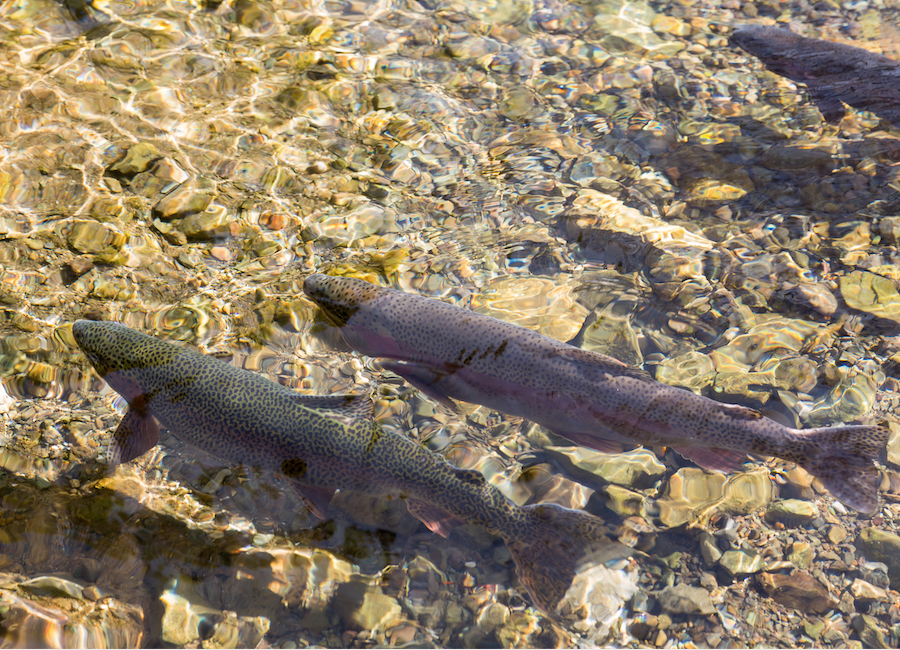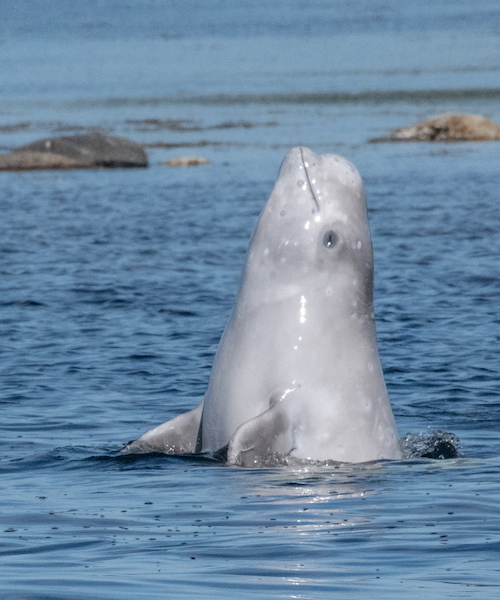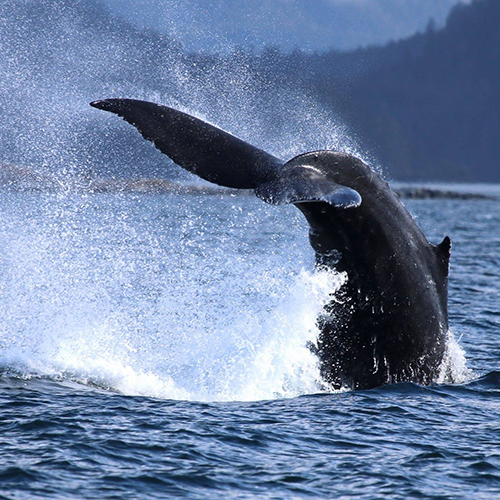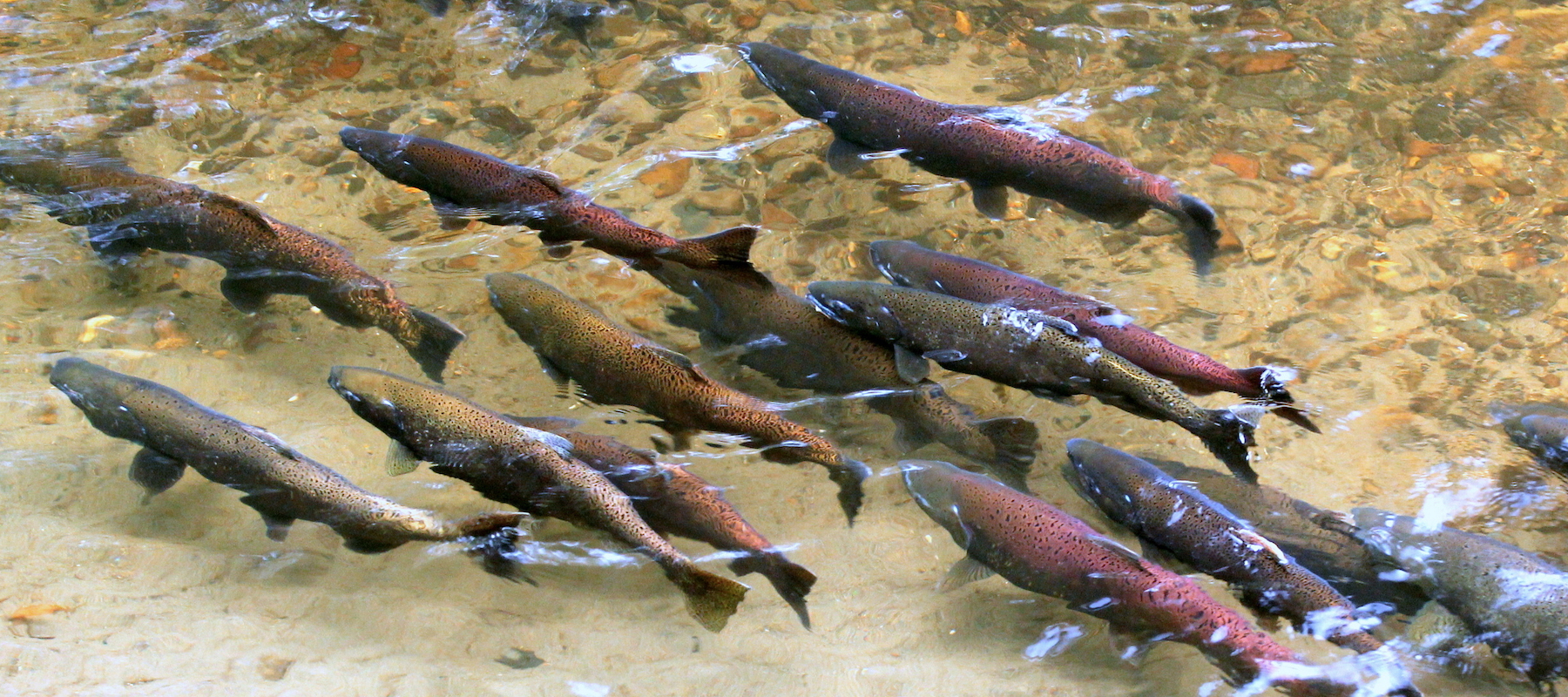Oceans Initiative is at the forefront of collaborative efforts to include climate change explicitly in models and action plans to promote recovery of endangered species, including SRKWs, North Atlantic right whales, and St. Lawrence Estuary beluga whales. Our team has considerable background in working at the science–policy interface to identify and use every tool at our disposal to advocate for evidence-based policies to rebuild resilience, and protect marine species in the face of climate change.
Our Work

Building resilience of Chinook salmon and SRKWs in a changing, warming world
Chinook salmon populations are decreasing in response to habitat degradation due to climate change. As Chinook salmon are SRKW’s primary diet, the survival of these prey is critical in understanding how to facilitate effective mitigation to support the survival of the killer whales. Oceans Initiative is working on a roadmap to identify which Chinook watersheds need to be protected now, because they’re likely to be producing salmon in a warming world, and which are priorities for restoration, conservation easements, and other measures to ensure they return to historic levels of salmon productivity. Together, these efforts ensure that there is enough salmon to support orca recovery and fishing opportunities for humans alike.

Climate change complicates efforts to ensure recovery of St. Lawrence Estuary Beluga
In a recent paper with colleagues from Fisheries and Oceans Canada and IUCN, we explored the three main human-caused threats to recovery—ocean noise, contaminants, and prey limitation. What we found surprised us. As bad as the three immediate effects are, the predicted effects of climate change will be a bigger driver of the St Lawrence Estuary beluga population dynamics than the threats we are dealing with now. To prevent extinction of these beautiful whales in the St Lawrence, we need ambitious mitigation efforts for noise, prey limitation, and contaminants now in order to build the population’s resilience to survive climate change in the coming decades.
From the Blog

Building Resilience of Wildlife Populations
By Dr. Rob Williams
With whales, we cannot count on populations bouncing back from harm. Each population is unique. Some may need us to slow ships down to make less noise. Others may need us to reroute ships to avoid striking and killing coastal whales. Others may need us to invest in ropeless gear for lobster and crab traps. Each action, on its own, seems trivial. But collectively, we can build the natural resilience of the population to buffer the next threat—climate change.
Selected Publications
Rob Williams, Robert C. Lacy, Erin Ashe, Ailsa Hall, Stéphane Plourde, Ian H. McQuinn, Véronique Lesaged, 2021. Climate change complicates efforts to ensure survival and recovery of St. Lawrence Estuary beluga. Marine Pollution Bulletin
Williams, R., Lacy, R., Ashe, E., Hall, A., Lehoux, C., Lesage, V., McQuinn, I., Plourde, S. 2017. Predicting responses of St. Lawrence beluga to environmental change and anthropogenic threats to orient effective management actions. Canadian Science Advisory Secretariat (CSAS). 2017. 44.

